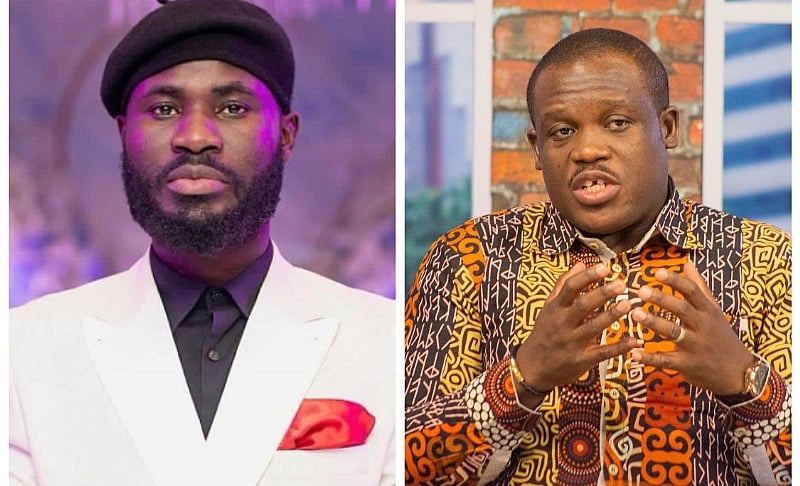The recent encounter between Ghana’s Minister for Communication, Digital Technology, and Innovation, Sam George, and a young phone repairer named Lighter has sparked controversy and ignited accusations of tribalism. Lighter, who hails from Kumasi, gained viral fame for his impressive technical skills, prompting a meeting with the Minister. During this meeting, however, Sam George made a comment that has drawn sharp criticism. Expressing surprise at Lighter’s fluent English and precise pronunciation, the Minister questioned whether Lighter was truly Ashanti, referencing a common stereotype about the Ashanti tribe’s difficulty differentiating between the letters “L” and “R.” This remark, made amidst laughter, quickly became the center of public debate, with many condemning it as insensitive and perpetuating harmful stereotypes.
MC Portfolio, a prominent Ghanaian master of ceremonies and entertainment pundit, has publicly denounced Minister Sam George’s comment, calling for a formal apology to the Ashanti people. In a strongly worded social media post, MC Portfolio expressed his deep disappointment and concern over the Minister’s perpetuation of a harmful stereotype. He questioned the relevance of pronunciation to ethnicity, highlighting the absurdity of linking linguistic nuances to tribal affiliation. MC Portfolio emphasized the damaging impact of such comments, particularly coming from a high-ranking government official, and stressed the importance of respecting cultural diversity and promoting unity within Ghana. He argued that the Minister’s remark was “below the belt,” and demanded an apology to rectify the offense caused to the Ashanti community.
The incident raises broader questions about the prevalence of tribal stereotypes in Ghana and the responsibility of public figures to promote inclusivity and respect for all ethnic groups. The Ashanti people, one of Ghana’s largest ethnic groups, have historically faced certain stereotypes, and the Minister’s comment, whether intended as a lighthearted joke or not, has been perceived by many as reinforcing these harmful perceptions. Critics argue that such comments, especially from influential figures, can contribute to prejudice and discrimination, undermining efforts to build a cohesive and unified nation.
The controversy also highlights the power of social media in amplifying voices and holding public figures accountable for their statements. MC Portfolio’s swift and public rebuke of the Minister’s comment sparked widespread discussion and further fueled calls for an apology. The incident demonstrates the increasing importance of online platforms in shaping public discourse and challenging potentially harmful rhetoric. It also underscores the role of influencers and public figures in using their platforms to promote positive social change and combat prejudice.
The Minister’s comment has ignited a broader debate about the need for greater cultural sensitivity and awareness in public discourse. Many argue that this incident serves as a reminder of the importance of challenging stereotypes and promoting respectful communication across different ethnic groups. They advocate for educational initiatives and public awareness campaigns to address the root causes of prejudice and promote understanding and appreciation of Ghana’s rich cultural diversity. This incident underscores the responsibility of leaders, public figures, and individuals alike to foster an inclusive and respectful environment where all citizens feel valued and respected.
The incident involving Minister Sam George and the ensuing public outcry serve as a crucial reminder of the ongoing need to combat tribalism and promote unity in Ghana. While the Minister’s comment has been widely condemned, it also presents an opportunity for dialogue and education to address the underlying issues of prejudice and promote greater cultural understanding. The response from MC Portfolio and other voices on social media highlights the growing intolerance for harmful stereotypes and the increasing demand for accountability from public figures. This incident offers a chance for Ghana to engage in constructive conversation about its diverse cultural landscape and work towards building a more inclusive and harmonious society.


